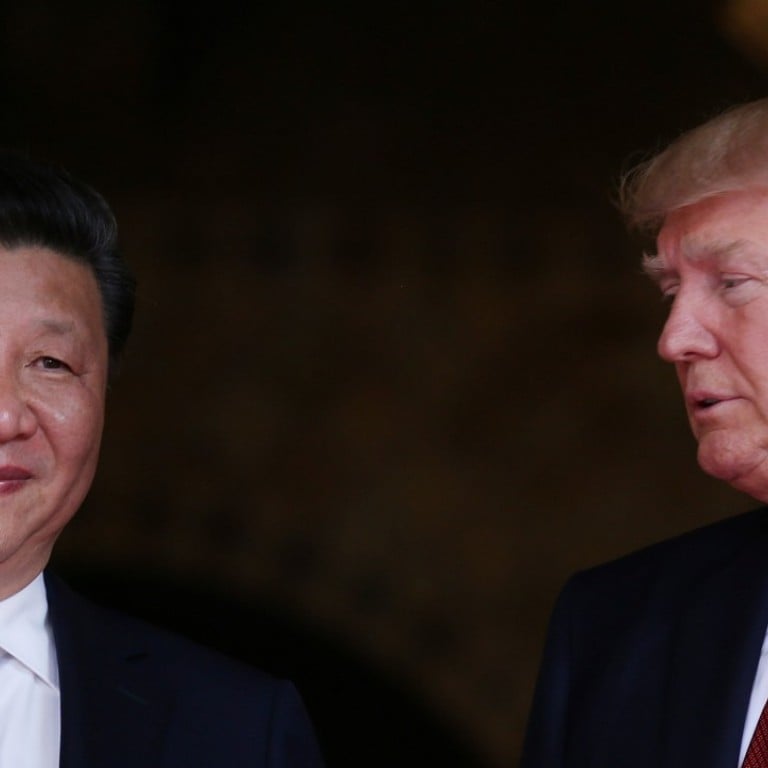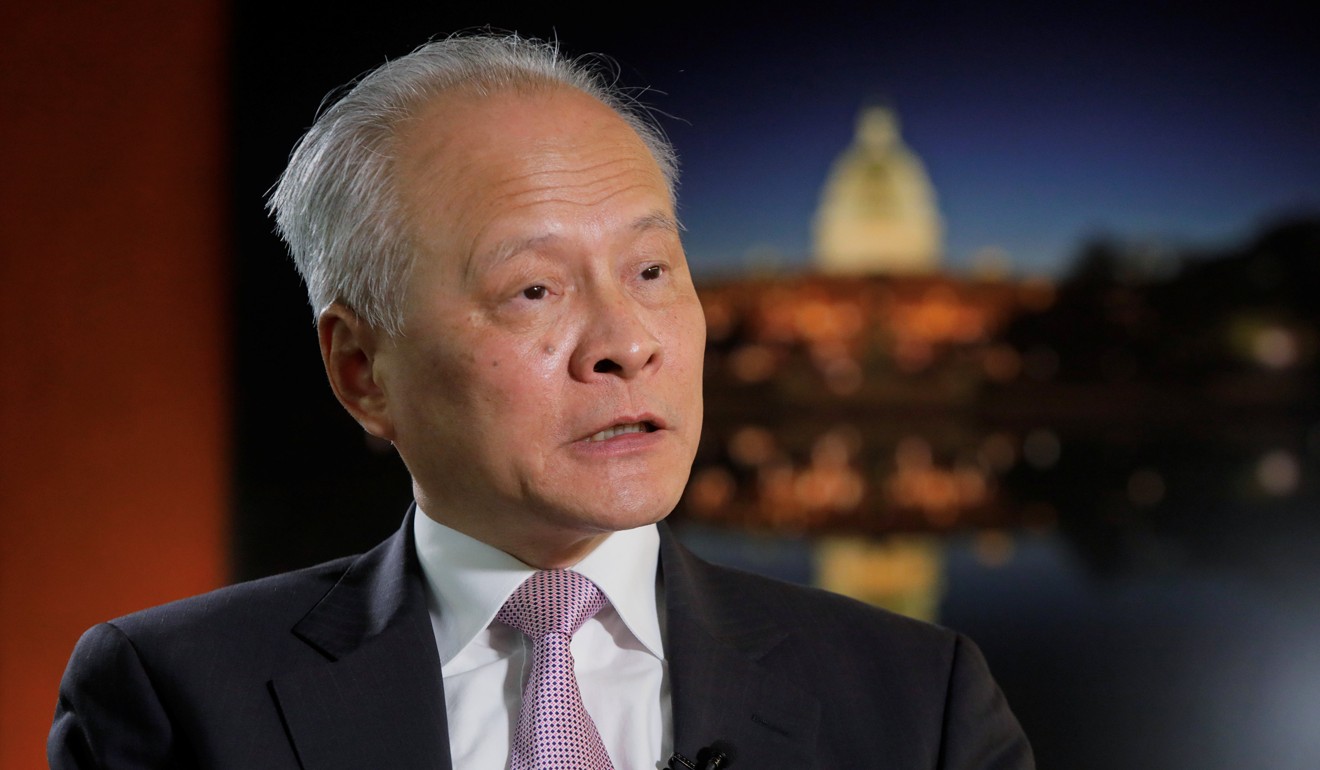
Xi Jinping and Donald Trump’s make-or-break chance in Argentina for a trade war ceasefire
- The G20’s leaders are heading to Buenos Aires, but just two will determine the outcome of the event
Leaders of the world’s biggest economies are descending on Buenos Aires on Friday for the 10th G20 summit, with the unravelling international order and intense wrestling between China and the United States over trade and geopolitics casting a long shadow over the event.
Unlike the inaugural summit in Washington a decade ago at the height of the global financial crisis, this year’s gathering – the first in Latin America – appeared to have no firm goals, and expectations for a show of international solidarity were low, observers said.
With trade tensions on the rise, the G20 leaders, representing four-fifths of global economic output, will aim to avoid a repeat of the debacle at the Asia-Pacific Economic Cooperation summit in Papua New Guinea two weeks ago, when for the first time in Apec’s nearly 20 years, leaders from the Asia-Pacific economies failed to issue a joint statement.
But it may not be easy now that friction between the world’s two biggest economies has gone well beyond a tariff dispute, and domestic political chaos in many countries threatens to throw the world into disarray. Leaders in Germany, France and Britain are grappling with turmoil at home; countries like Italy, Mexico and Brazil have turned to populist politicians; and this year’s G20 host, Argentina, is still reeling from its own economic crisis.
More important, the gradual disengagement between Beijing and Washington has left multilateral leadership gatherings, such as the G20, with little momentum to advance collective solutions to global political and economic woes, according to Pang Zhongying, a Beijing-based international relations expert.
Against this backdrop, the dinner meeting on Saturday between Chinese President Xi Jinping and his US counterpart Donald Trump could be even more important, not only for US-China relations but also for the stability of the world economy.
What will China offer the United States to break the trade war deadlock?
“In a sense, it is a make-or-break moment,” Pang said. “It is probably the best opportunity for Beijing to avoid further deterioration in bilateral relations amid mounting fears of a new cold war and even all-out confrontation. If the summit between Xi and Trump fails to bring about a truce, bilateral ties are almost certain to be strained further next year.”
Gal Luft, co-director of the Washington-based Institute for the Analysis of Global Security, said the bilateral summit, the first between the two alpha males since the trade war erupted, might be the last chance for them to meet until the next G20 gathering in Japan in June.
“This means that it is Trump’s last chance to size up Xi, sense his strengths and vulnerabilities, and figure out how hard he can push. A perception of weakness would only bring a harder push while an expression of resolve would give Trump some pause,” he said.
“After all, of the two leaders Trump is the only one who hears the ticks of a political clock,” he said, referring to the US presidential election cycle starting from late next year, which would bring more uncertainty to the bilateral ties.
However, according to Luft, the good news about the Argentina meeting is that “truly anything can happen in the room”. “In the end, it’s up to the two gentlemen to determine the course of the global economy for the years to come,” he said.
Sriparna Pathak, assistant professor of international relations at Gauhati University in Guwahati, India, said the trade dispute was poisoning not just the overall US-China relationship but it looked set to overshadow other discussions at the G20.
“The spat [between Beijing and Washington] divided leaders at the 33rd Asean summit [in Singapore early this month], as well as the Apec summit, where issuing a joint communique was not possible,” she said, referring to the Association of Southeast Asian Nations.
Similar strains were expected in Argentina due to heightened antagonism and rivalry between Beijing and Washington, which could well jeopardise prospects for a multilateral statement or communique, according to Monika Chansoria, a senior fellow at The Japan Institute of International Affairs in Tokyo.
“The US-China trade dispute and its consequent fallout, in all likelihood, shall partially stonewall or entirely eclipse any forward-looking breakthrough moment at the G20 summit,” she said.
How China’s economic reformers are using US trade war to push demands for opening up
Other issues to be discussed at the G20 include sustainable development, technology and infrastructure. But talks on the contentious topic of reform of the World Trade Organisation would largely be seen as an extension of the dispute between the US and China, Pathak said.
Going into the high-stakes summit with Xi, Trump has apparently upped his game, telling The Wall Street Journal early this week that it would be “highly unlikely” for him to hold off on raising tariffs on Chinese imports to 25 per cent on January 1, dampening hopes for a trade ceasefire.
Then China’s top envoy to Washington Cui Tiankai said China hoped to see a negotiated solution to trade tensions, but would “fight to safeguard our own interests” and would not yield to Trump’s trade bullying.

Yuan Peng, president of the China Institutes of Contemporary International Relations in Beijing, said he remained cautiously optimistic about the G20 summit, which was likely to see a deal to delay Trump’s further punitive tariffs or even a temporary detente.
“The tough talk from Trump and top White House officials is more likely part of their negotiating tactics to squeeze maximum concessions. Despite the aggressive rhetoric of Vice-President Mike Pence and other US officials in recent months, I don’t think Washington is fully prepared for all-out confrontation with China and Trump’s China policy has yet to take shape.”
According to Yuan, the main obstacle to a trade deal is not what Washington has demanded, but the way those demands were raised by the Trump administration officials. “What the US wants is not necessarily incompatible with our reform goals, but we cannot afford to look weak and cave in to their bullying tactics,” he said.
Allan von Mehren, chief analyst and China economist at Copenhagen-based Danske Bank, said there was a 60 per cent chance of a trade ceasefire in Buenos Aires, but Trump’s repeated warnings about increasing the tariffs could be a problem.
“I find it hard to see China commit to an agreement if Trump continues to ratchet up tariffs. It goes against their demand that there should be mutual respect and that talks should be based on equality – not one side trying to bully the other into making concessions as they see Trump trying to do,” he said.
Xi-Trump at G20: why North Korea is both common ground and trade war battleground
Observers said the stakes in the meeting were high for both Trump and Xi, who may have little appetite for anything other than trade despite a long list of bilateral and regional flashpoints.
“Trump’s signature foreign policy effort is North Korea and he surely knows that if his upcoming meeting with [its leader] Kim Jong-un is to be a success he must secure the support of both Xi and Putin,” Luft said, referring to the Russian leader, whom Trump will meet in Argentina. “This alone may convince him to lower the pressure on the trade front in order to gain some goodwill on the North Korean front.”
Yun Sun, a senior fellow at the Stimson Centre in Washington, also said that whether the G20 summit ended up with a joint statement could largely depend on Trump.
“Whether the Apec debacle will happen again depends on the tone of the meeting – China perceived a harsh and provocative attitude from the US at Apec. If Trump is more conciliatory, a breakthrough, symbolic or substantive, is possible,” she said.
Von Mehren also expressed concerns that a failure to issue a common statement at the end of the G20 summit could poison the atmosphere for the subsequent dinner talks between Xi and Trump.
“If the US insists on some language that China will not accept, then we could end in the same situation as with the Apec meeting. With no joined communique. That would clearly create a very difficult sentiment for the US-China trade negotiations at the dinner,” he said.
For Xi, the stakes for his summit with Trump are even higher, according to Pang.
“Bilateral significance aside, it will also be perceived as a major test of Xi’s leadership and willingness to honour his numerous pledges on deepening reform and opening up. If Beijing is sincere about its commitment on further reform, it is essential to mend ties with the US and repair its image tarnished by rampant allegations about China’s unfair trade practices and policies,” he said.
Despite their differences on whether Xi and Trump can bring about a trade ceasefire, analysts are generally pessimistic about the prospects for ties between the two countries, which have already shifted from economic engagement towards geopolitical competition and rivalry.
“There is no going back to the old relations and a temporary remission should not be confused with a reset. The two powers are already on a confrontational trajectory and it would require no less than an earth-shattering global event to bring them back to productive coexistence,” Luft said.


